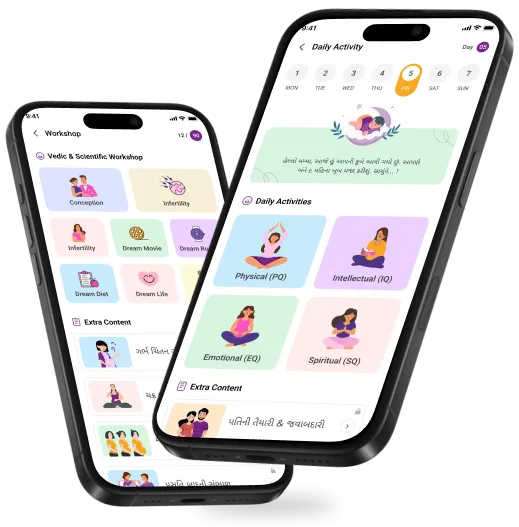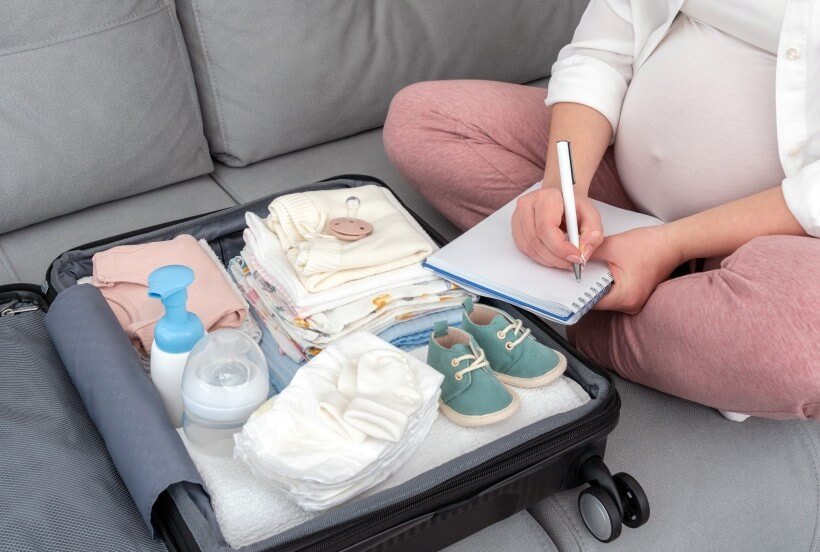Exposure to smoke or secondhand smoke during pregnancy can increase risk of severe health problems for the mother and the baby.
Here’s what to know about secondhand smoke during and after pregnancy and how to reduce exposure to secondhand smoking.
What is Second hand smoking?
Second hand smoke is the smoke that comes from either burning a cigar/cigarette or from someone breathing out smoke when they are smoking.
Pregnant women should stay away from it, as it is harmful and may cause permanent disabilities in the child. Along with this, there is scientific evidence that the risk of stillbirth (child dying in the womb after 28 weeks of pregnancy) increases in pregnant women exposed to tobacco smoke.
Concerns about Exposure to Toxins

Exposure to smoke is known to have an effect on babies even before they are born and even after childbirth. Exposure to tobacco smoke while pregnant causes toxins like nicotine and carbon monoxide to enter your bloodstream and pass into your unborn child through placenta.
Nicotine in bloodstream during pregnancy can affect the function of placenta and decrease blood flow to the developing baby. This cause negative effect to the heart, lungs, and central nervous system (CNS) of the baby.
Carbon monoxide, a toxic substance in cigarette smoke, can reduce or restrict fetal growth, cause low birth weight, and sometimes cause permanent birth defects.
There is no safe level of exposure to second hand smoking; even brief exposure can be harmful.
Dangers after Delivery
If you are exposed, you are still bringing secondhand smoke on your skin, hair, nails, and clothes. Exposure to toxic chemicals can even reduce the amount of breastmilk produced and decrease the quality of breastmilk.
It is best to avoid smoking in presence of a newborn because they breathe at a faster rate than adults and thus inhale more chemicals. It is more harmful for babies because they have less developed airways, lungs, and immune systems. Newborn exposed to tobacco smoke are at greater risk of,
- Asthma
- Chest infection
- Cough and cold
- Ear infection
- Meningitis

Studies have further shown that babies exposed to toxins are more likely to develop behavior problems and attention deficit disorders.
Secondhand smoke can also have psychological effects on the child. Smoking is a kind of silent killer that has the following adverse effects on the body as well as the brain of the child:
- Hyperactivity Disorder (ADHD)
- concentration deficit disorder
- Defiant anger disorder
- Substance abuse disorder (the child will also take drugs.)
{{cool-component}}
Ways to reduce/eliminate exposure
The best way to protect yours and your baby’s health is to ask those around you not to smoke in your presence, whether at home or car. Smokers should only smoke outside while making sure no pregnant women are around.

Secondhand smoke can stay on your clothes, which can be exposed to your baby during breastfeeding. Make sure to change your clothes and take a bath before breastfeeding.
Precautionary tips
- Tobacco contains 100 toxic chemicals. Out of which, 70 are cancerous. Therefore, stay away from any type of tobacco-nicotine consumption during pregnancy, pre-pregnancy and feeding period. Don't let anyone smoke around you.
- If you are planning, then make your husband also stop consuming tobacco or alcohol 3 months before conception.
- Not only secondhand smoking, but there are some harmful gases, smoke, and chemicals in our household that are harmful for pregnant women.
- Smoke from indoor fuel is easier to control. Cookers, heaters, and other appliances can release pollutants into your home. It is important to open the windows while cooking and wear a mask if exposure is for more than 5 minutes.

- The most harmful pollutant is carbon monoxide, which is a poisonous gas with no smell or taste. It is released when fuels like gas, oil, coal, and wood are half burned. Make sure that your cooking appliances are regularly serviced and that chimneys and vents are never blocked.

- Other harmful chemicals are present in household products, like pesticides (insect killers), cleaning products (bathroom and floor cleaner), paint fumes, and nail polish. To be safe, wear protective equipment such as gloves, a mask, and glasses. Avoid breathing in fumes.
- Paint contains lead, which can affect the health of unborn babies. A high level of lead exposure can cause pregnancy complications.
{{cool-component-1}}
To avoid exposure to chemicals:
- Always read and follow the instructions on any packet.
- Ask someone else to help with household chores involving chemicals.
- consider not renovating the house while pregnant.
- wash your hands regularly.
- Keep your house well ventilated.
- Wear a mask indoors and outdoors if you feel even slightest exposure.
Disclaimer: This blog is correct as per the writer’s knowledge. This is not a medical guidance. Follow as you are responsible for.












.webp)

.webp)





